As world leaders depart Glasgow, DePaul and Chicago environmental activists react to COP26 summit
Credit: Frank Jordans | Associated Press
Masses of people queue as they arrive for the COP26 U.N. Climate Summit in Glasgow, Scotland, Monday, Nov. 1, 2021. The U.N. climate summit in Glasgow gathers leaders from around the world, in Scotland’s biggest city, to lay out their vision for addressing the common challenge of global warming.
After the United Nation’s 26 annual Conference of Parties (COP26) regarding combating climate change, DePaul students and faculty are feeling cautiously optimistic about the Conference’s results.
The two-week conference ended on Friday, Nov. 12, in Glasgow, Scotland.
COP26 drew both heads of state and non-state actors, like large companies and banks, to Glasgow to pledge to halting deforestation, reducing greenhouse gas emissions and phasing out the use of fossil fuels. Though these pledges come with handshakes and deadlines, they are not legally binding. It’s up to individual countries to hold themselves accountable and report their progress to the UN.
DePaul University Endowed professor of Environmental Diplomacy Phillip Stalley stressed the importance of pledges made at the conference despite their non-binding nature.
“One can certainly find many examples of countries failing to live up to their promises when it comes to climate change,” Stalley said. “However, perhaps contrary to popular belief, the targets offered in international climate change agreements do matter and shape state action.”
These pledges provide a framework for holding states accountable and measuring progress despite protests, which were present in Glasgow last week.
Thousands of protesters gathered outside the conference with Swedish Fridays for Future movement leader Greta Thurnberg at the helm. Protesters called for more drastic action to curb greenhouse gas emissions to limit global warming to less than two degrees celsius to prevent drastic environmental consequences.
“It is not a secret that COP26 is a failure,” Thurnberg said in an article by the BBC. “It should be obvious that we cannot solve a crisis with the same methods that got us into it in the first place.”
Wesley Janicki, president of Climate Reality DePaul, a group dedicated to fighting climate change and encouraging DePaul to be more sustainable, echoed Thurnberg’s sentiments and wished younger activists had a seat at the table within the conference.
“Right now, if you’re rich, you’re there,” Janicki said. “If you’re a state actor, a president or prime minister, you’re there.”
Janicki expressed frustration at the lack of meaningful representation of indigenous communities, young activists and local climate organizations.
“If we’re going to reach these goals of trying to keep [warming] under 1.5 degrees Celsius … It’s not gonna happen [unless] you require local actors to be a part of this decision making process,” Janicki said.
Notable attendees inside the conference included President Joe Biden and Illinois Gov. JB Pritzker. Biden’s appearance signaled a shift in U.S. climate policy, as his predecessor, former President Donald Trump, famously withdrew the country from the 2015 Paris Climate Accord and promoted coal at past conferences of parties.
At COP26, Biden doubled down on his April 2021 goal of reducing the U.S.’ carbon emissions to 50 percent of 2005 levels. Tony Quintanilla, a leader of the Lincoln Park-based northside chapter of the Citizens Climate Lobby, saw his speeches at the conference as “striking the right tone.” However, Quintanilla lacks faith that Biden will be capable of following through on the U.S.’ pledges with the current state of his domestic agenda.
“The reality is that the Build Back Better better plan, the way it’s structured right now, won’t get us there,” Quintanilla said. “It was not gonna get us to 50 percent because certain senators pulled out the Clean Energy Plan.”
As historically the world’s top emitter of these gasses, the U.S. has one of the largest roles in combating the climate crisis.
“I think [our] responsibility is to lead on finding solutions to the climate crisis,” Quintanilla said. “If we don’t lead, the global initiative will not happen.”
Historically, this leadership has been limited.
“The U.S. has a significant credibility problem in global climate change negotiations,” Stalley said. “Both in historical and per capita terms, it is the world’s top emitter of greenhouse gases, and the steps it has taken to fight climate change in the past have not been commensurate with the debt it owes the rest of the world.”
Despite Biden’s tone and pledges, his policies’ domestic issues are no secret to the rest of the world.
“Unfortunately, other countries can read the news too, and, and they realize that American leadership doesn’t have the backing of our Congress,” Quintanilla said.
However, Stalley finds the defeatist attitude that many, including most of his students over the years, bring to the topic of stopping climate change counter-productive, and encourages cautious optimism.
“This doomsday mentality makes it much less likely we will take the political action necessary to make our socio-economic system more sustainable,” he said.
Though commitments at the conference don’t hold the same weight as policy, Stalley sees taking political action and efforts of students like Janicki vital to making them happen.
“If students get politically involved and do what they can to [hold fire to the feet] of governments and businesses, they increase the odds that the promises made at COP26 will translate into actual emission reductions,” Stalley said.


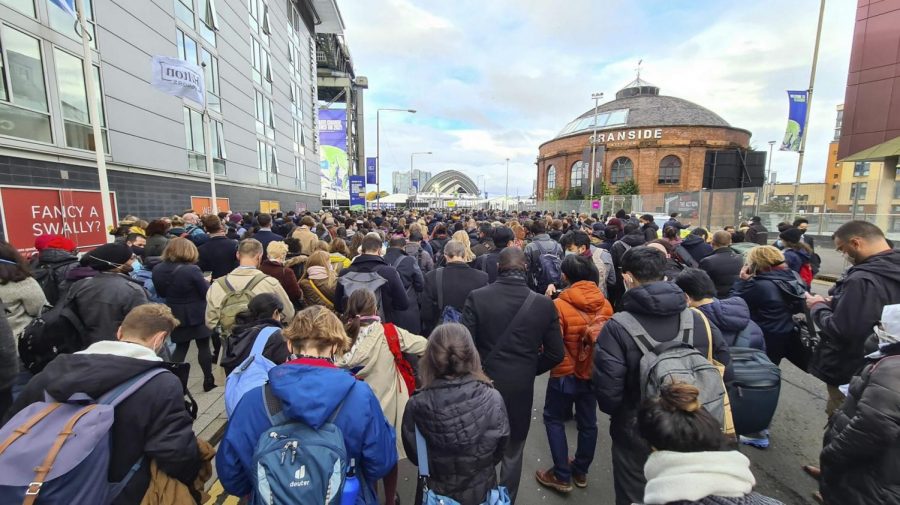
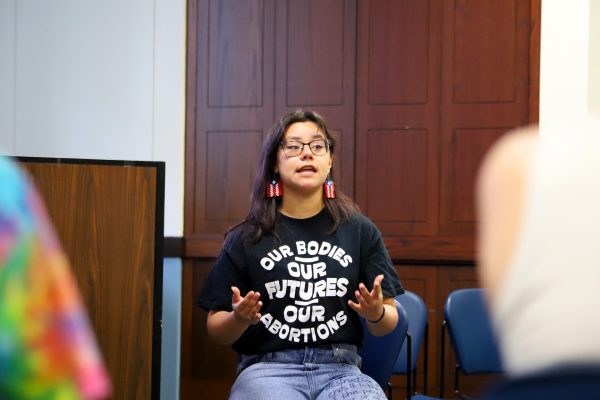

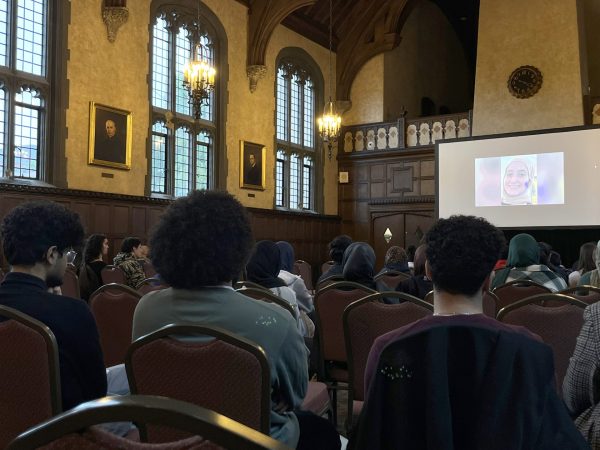
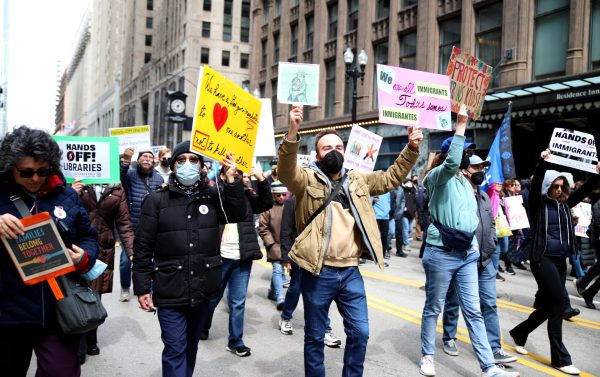
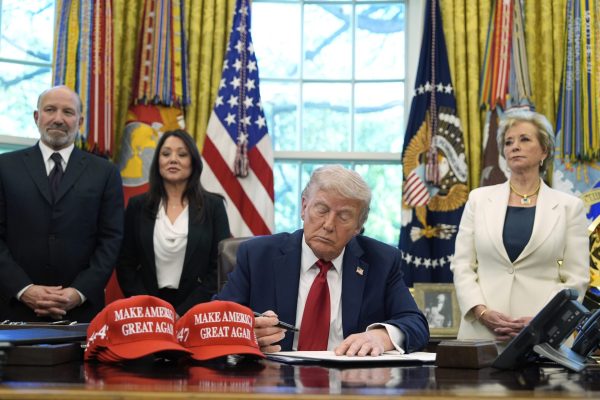
blue demon / Nov 15, 2021 at 11:23 am
the word ‘Indigenous’ is misspelled